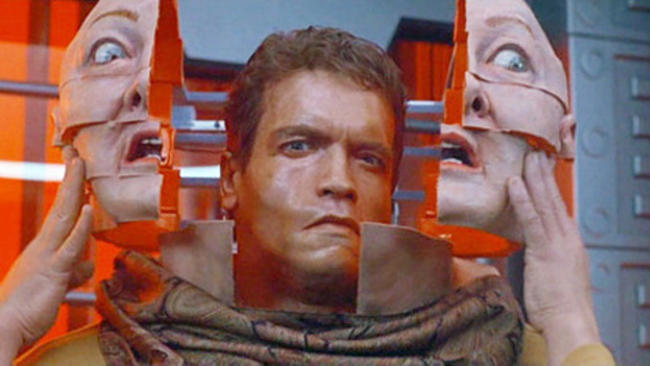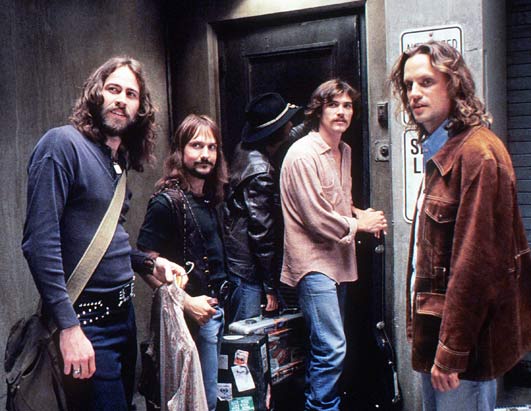Total Recall (1990)
Directed by Paul Verhoeven
Starring: Arnold Schwarzenegger, Sharon Stone and Michael Ironside
Synopsis:
Doug Quaid (Arnold Schwarzenegger) is a construction worker constantly haunted by dreams and memories of Mars. Against the best wishes of his wife, Quaid goes to Rekall, a company that implants artificial memories, so he can “remember” visiting the red planet. However, things do not go as planned, and Quaid is soon forced to fight for his life.
Analysis:
I have watched Total Recall many times over the years and still, to this day, struggle with whether or not the story is real or merely a fabrication of the mind. There are many hints and clues scattered throughout that seem to provide discernible answers but as soon as one believes they have it figured out, their sleuthing prowess is undermined by the narrative (and they are forced to rethink their decision).
In actuality, there is no definitive answer provided which, in all likelihood, is the entire point of the film. The lack of discerning of whether or not this is real or, in fact, merely a dream is simply a commentary about society and their inability to exist within the mindset of a fractured reality.
Total Recall is a film that has come to represent the notion of Postmodernism. Along with films such as Blade Runner (1982) and The Matrix (1999), these films strive to represent the nature of a fragmented identity. In addition, a Postmodern film grapples with issues such as reality, the image, media saturation and the loss of the natural.
In a basic sense, Postmodernism reflects the idea that meaning is no longer contained/explained within the confines of a single text. There are now many separate and conflicting ideas that may account for answers. Postmodernism is not about structure but rather about a confetti of thought. In terms of Total Recall, the film cannot easily be interpreted as it is an attempt to reflect an ever-changing existence.
Total Recall is based on a short story by Phillip K. Dick entitled “We Can Remember It For You Wholesale’. In typical Postmodern fashion, Dick’s stories typically focus on the fragile nature of what is “real” and its relation to identity. His stories often become surreal fantasies as his main characters slowly discover that their everyday world is actually a constructed illusion.
For instance, in Blade Runner (a film based on a Philip K. Dick story), Harrison Ford begins to doubt whether or not he is an actual human or, in fact, a replicant. In Total Recall, Arnold begins to wonder whether or not he is Doug Quaid (a construction worker) or Houser (a secret agent).
Conflicting duality is a key component of Dick’s stories, and his themes have helped to pave the way for postmodern theorists such as Jean Baudrillard and Frederic Jameson in their attempts to comprehend and dictate the vastness of this theory.
Though, for as much as the film strives to instruct, it is still an impressive piece of action entertainment. The film is relentless in its depiction of violence and gore, and outraged many censors in 1990 (it seems fairly tame, nowadays). It is fun-filled entertainment that is directed with flair from famed Dutch director Paul Verhoeven (who also directed 1987’s Robocop- a film very concerned with the nature of reality, technology and the deconstruction of the body). In a sense, this film is sort of a companion piece to Robocop. Both deal with many similar themes which may be why Verhoeven decided to helm this production.
In many ways, Total Recall is a structured analysis concerned with society’s inability to cope with the present-day reality of an ever-changing identity. We are but wandering souls who exist in a fractured culture of fear and paranoia. What is real? Who am I? These are but some of the questions that the world struggles with on a day to day basis, and which are greatly realized in this action extravaganza. This film is a rare example of a thinking man’s movie existing within mainstream culture.



